Privacy: birth and death. 3000 years of privacy history in pictures
- Transfer
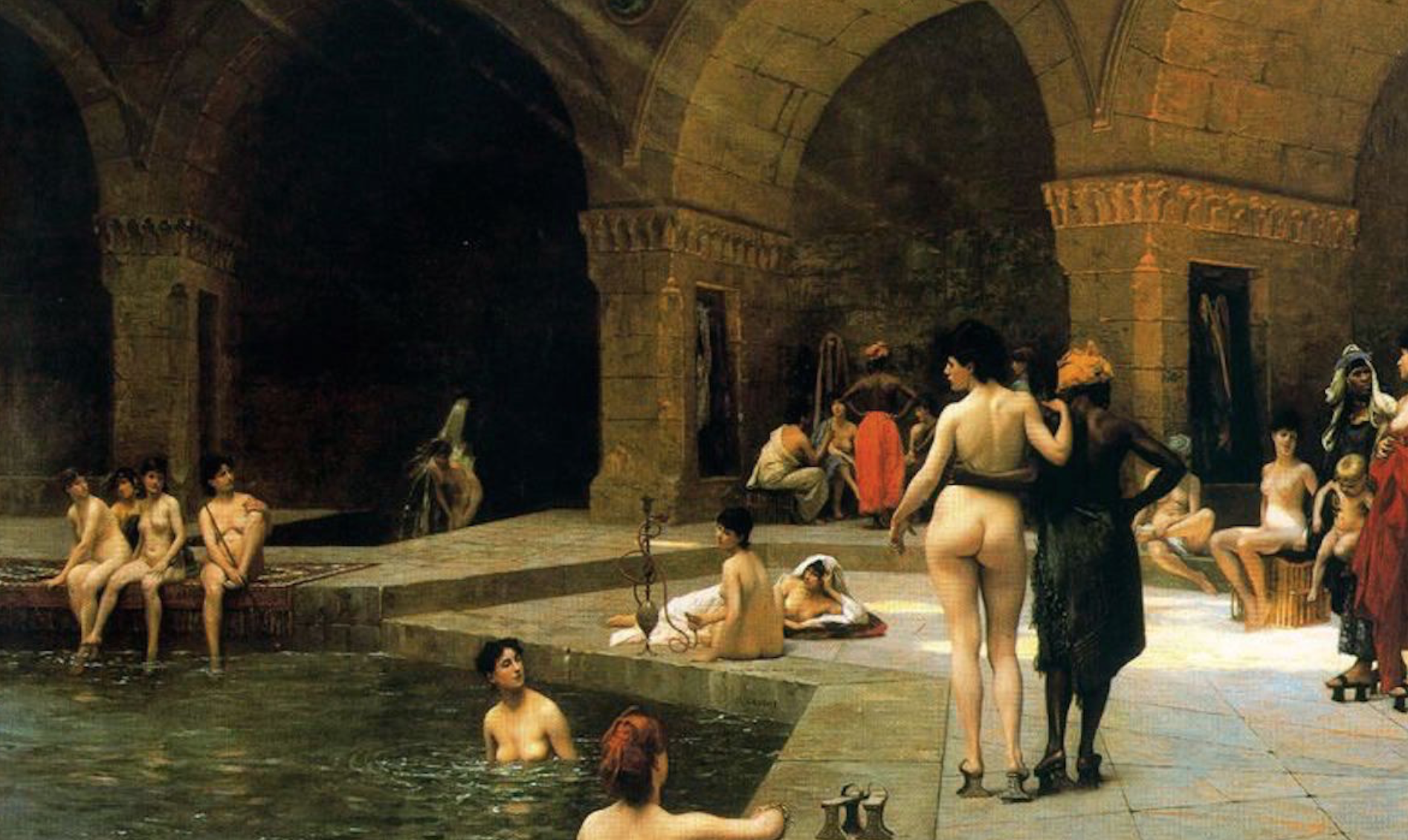
In the era of IT and the rapid development of technology, the concept of "privacy" has become a fiction. Global information networks and many services quietly collect terabytes of data about users, and users themselves constantly put their lives on the public display in social networks. But still, many of us consider our computers, smartphones and network behavior to be “private”, or at least strive for it. But how did the concept of "privacy" appear in human culture?
Privacy, in the sense in which we understand it, is only about 150 years old. People have an instinctive desire to retire. However, for 3,000 years, convenience and wealth have remained a priority. In the first part we will look at how privacy was born, and in the second part we will see how advanced technologies in healthcare make people choose between an early, economically ineffective death and a world without any semblance of privacy. Given historical trends, most likely we will abandon privacy and return to traditional open existence.
Part 1
How Privacy Slowly Appeared Over 3,000 Years
“In fact, privacy can be an anomaly,” said Vinton Cerf , co-creator of the military Internet prototype and CEO of Google.
The surf faced a flood of criticism from the media, suggesting that privacy was unnatural. Despite the fact that Surf was simply reflecting on what remained outside the scope of the Federal Trade Commission in 2013, he is right from a historical point of view.
Confidentiality in its traditional sense is only about 150 years. Most people living in tiny communities knew little about privacy. Sex, breastfeeding and bathing took place in front of family and friends without any shame.
A 3,000-year history shows that privacy has always been secondary. People have always preferred solitude to money, prestige or convenience.
Tribal life (about 200,000 years - 6,000 years BC)

“Since the children of hunter-gatherers slept with their parents in the same bed or in the same hut, there was no privacy. Children saw their parents have sex. On the islands of Trobrian Malinowski they said that parents did not take special measures to protect children from observing sex, they simply scolded them and said to cover their heads with a mat. " University of California Anthropologist Jared Diamond .
Being incredibly rare in tribal society, privacy, however, can be instinctive. Researchers of tribal communities suggest that people preferred to have sex alone (in 9 out of 12 communities in which parents lived in a separate room, people preferred to have sex indoors. And in those communities in which there were no separate rooms, it was outdoors) .
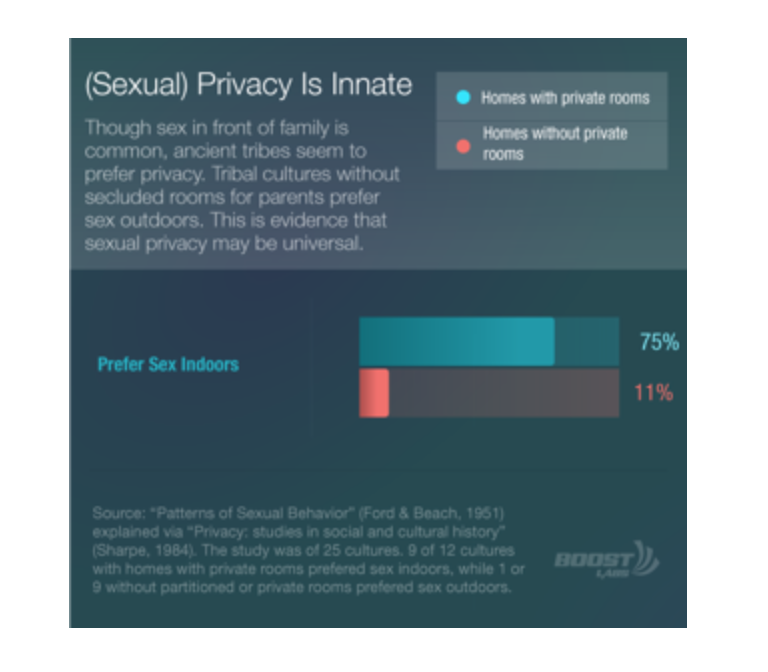
However, in practice, the need for survival often overshadows the desire for solitude. For example, in modern North American Utku, this desire is deeply offensive.
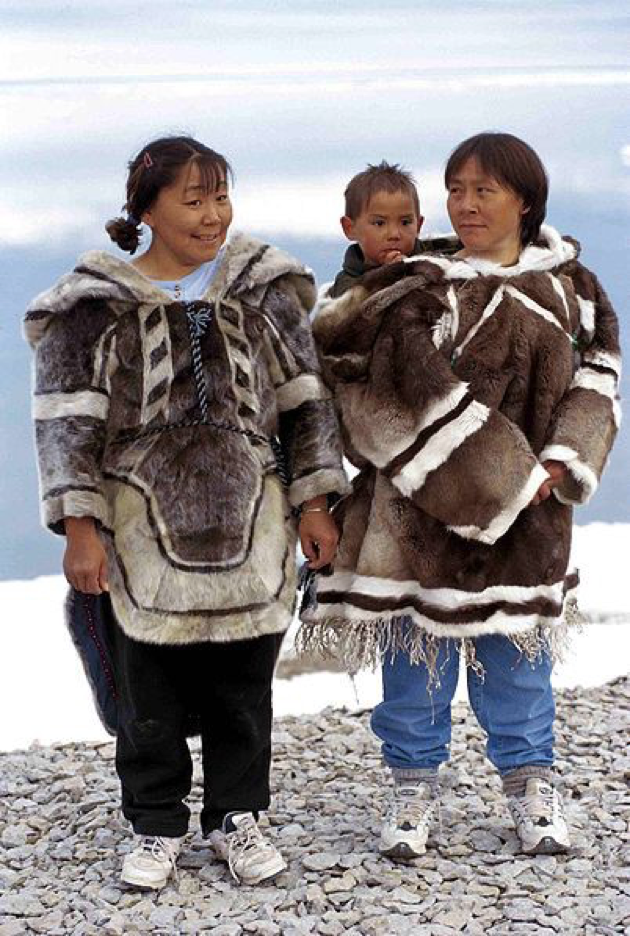
“It dawned on me how helpless I found myself in the wild when they left me. It’s much better to suffer from a lack of personal space, ”said anthropologist Jean Briggs about how the host family from the tribe rejected her after trying to go out on one day to explore the wild.
But if privacy is not the norm, where did it come from? Let's start with the first cities.
Ancient cities (6th century BC. - 4th century BC. E.)
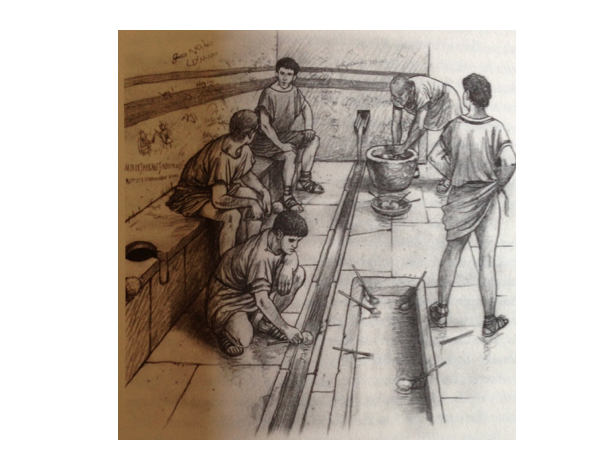
Like their tribal ancestors, the Greeks showed some preference for privacy. But, unlike primitive ancestors, the Greeks had ways to do something about it. Samantha Burke of the University of Leicester discovered that the Greeks used their sophisticated understanding of geometry to build houses with a mathematically verified minimum viewing from the outside with the maximum amount of light entering the interior.
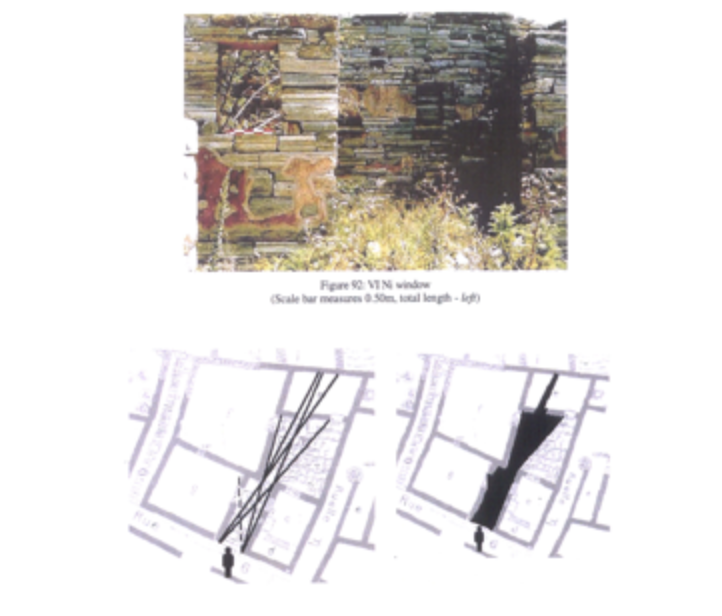
However, the Athenians' addiction to solitude was subjected to substantial criticism.
"For when people hide their actions from each other in the darkness, and not in the light, none of the people will ever receive due honor, or church service, or proper justice." Socrates
Athenian philosophy turned out to be much more popular than their architecture. In the far less egalitarian successor of Greece, Rome, landowners built their homes with wide open gardens. Turning your home into a public museum was a show of wealth. Although, the rich seemed to be aware of their unfortunate compromise.
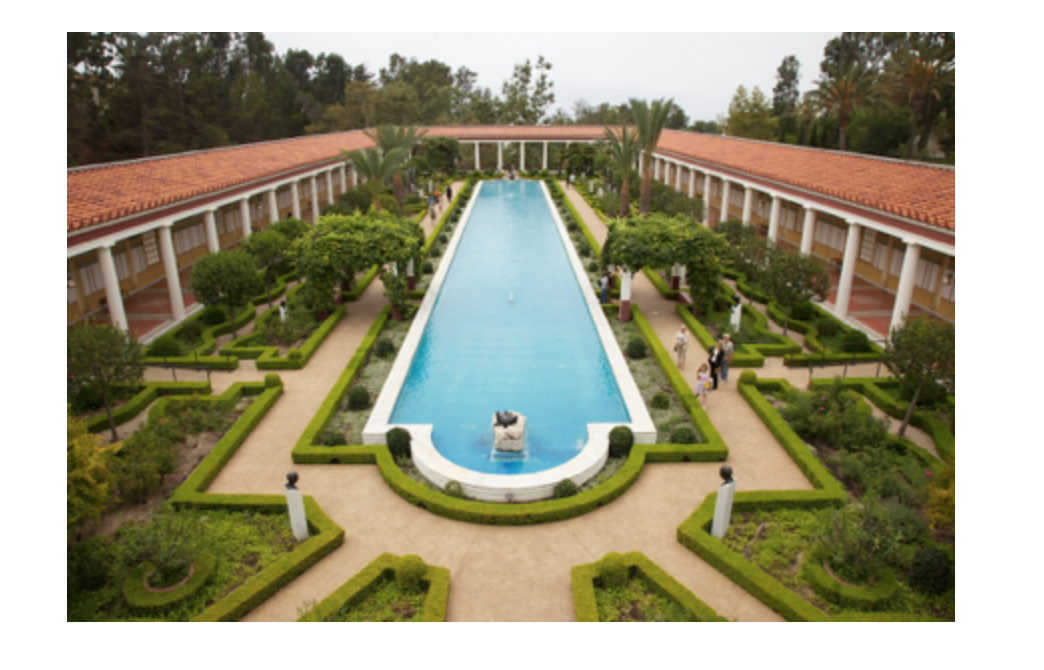
“Great wealth has a characteristic that does not allow anything to be hidden, nothing to be hidden; she opens the princes' houses, and not only them, but their bedrooms, their intimate dens, and reveals and puts up for discussion all their great secrets. ” - Pliny the Elder , "Natural History", circa 77 N.E.
Most of the Romans lived in crowded apartments, with walls thin enough to hear every noise. “Ancient Rome could be called a giant campground,” writes Angela Alberto in A Day in the Life of Ancient Rome.
And thanks to Rome's acceptance of public sex, there was less motivation to make it banned - especially given its advantages.
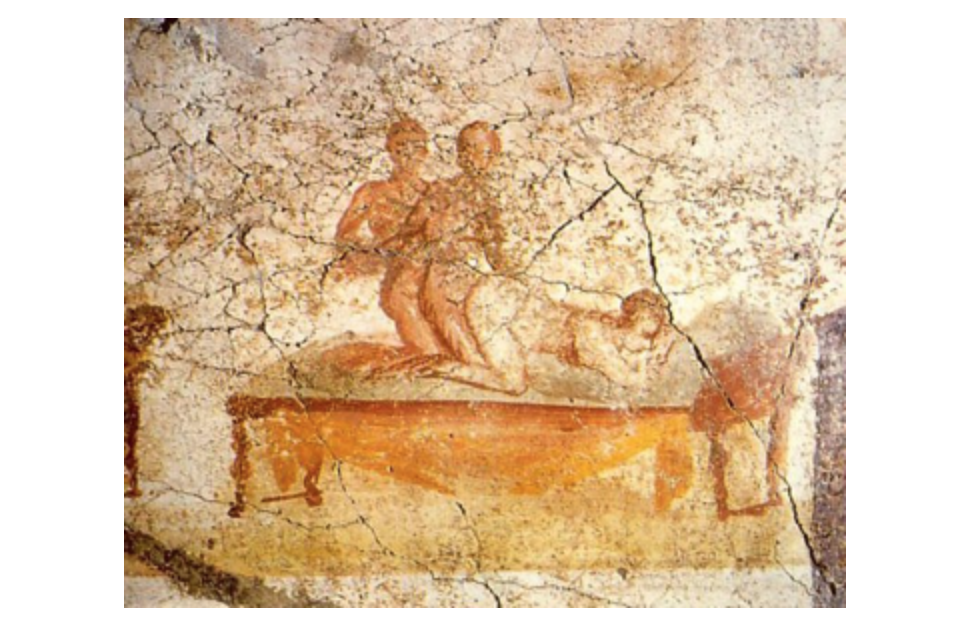
“Baths, drunkenness and sex corrode our bodies, but baths, drunkenness and sex make life worthwhile” - an inscription on the wall of a Roman bath.
The Early Middle Ages (4th Century AD-1200 AD): Confidentiality as Isolation
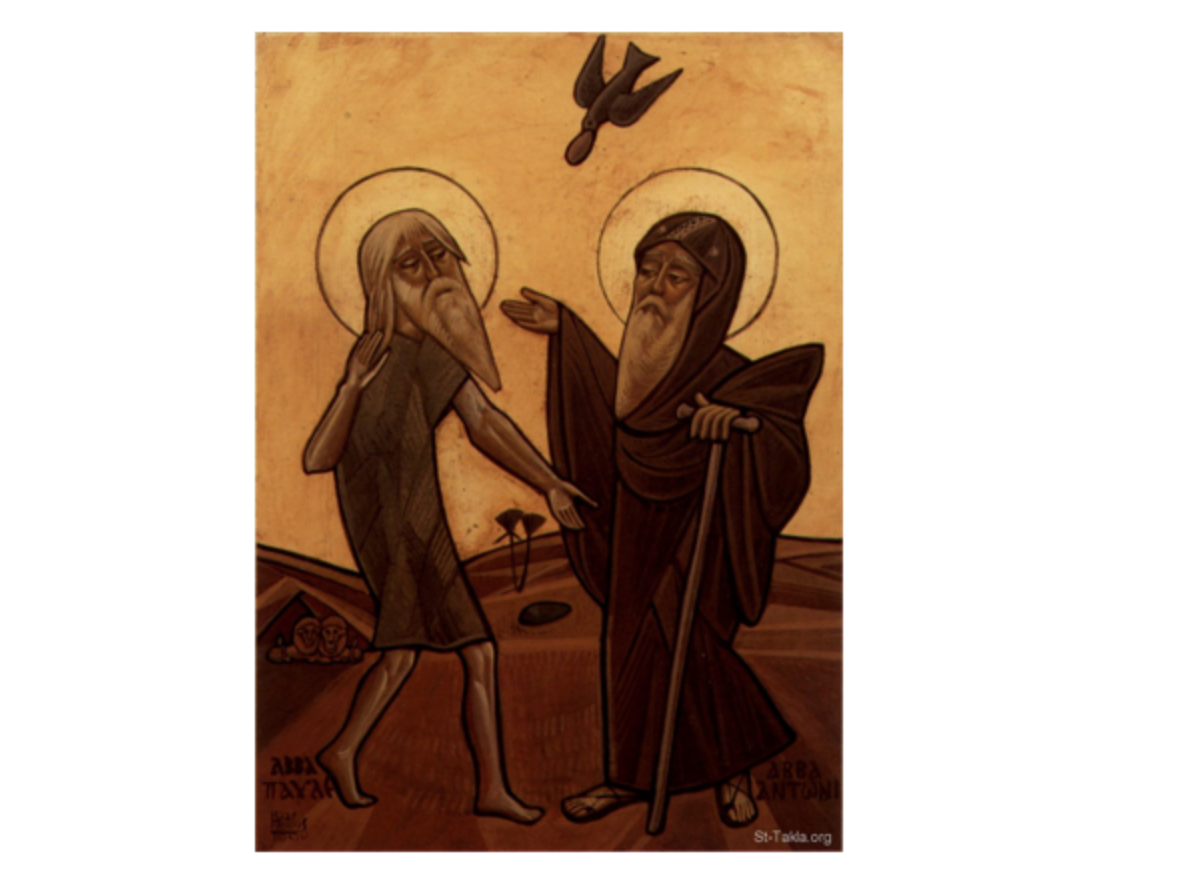
The early Christian saints first developed the concept of privacy: solitude. The Bible promoted the idea that morality is not only the result of an evil act, but also the intention to do harm; this new combination of intention and morality prompted the most devout followers (monks) to leave society and focus on the obsessive struggle with their inner demons, rejecting the temptations of civilization.
“Just as fish die if they stay out of water for too long, monks who wander outside their cells or spend time with people from the outside world lose their inner peace. Therefore, like fish heading for the sea, we must hurry to get to our cells, fearing that if we linger outside, we will lose our inner vigilance ”- Anthony the Great .
Rumor has it that on the island-monastery of Nitria, the deceased monk was found only after 4 days. The monks meditated in isolation in stone cubicles, huts known as the "Hive."
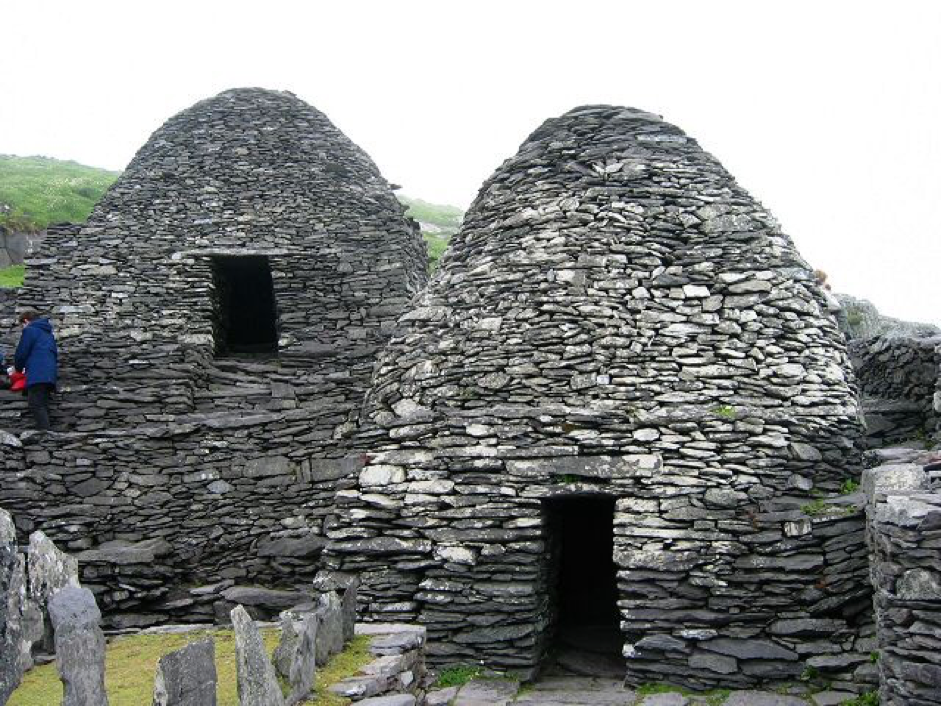
Even before the collapse of ancient Rome in the 4th century CE, most of humanity was engaged in agriculture.
Here is a stylized drawing of the "Common House", this design has been popular for 1000 years. The house, reminiscent of the Lord of the Rings movie, demonstrates that people and animals slept in the same room - because there was only one room in the Common House.
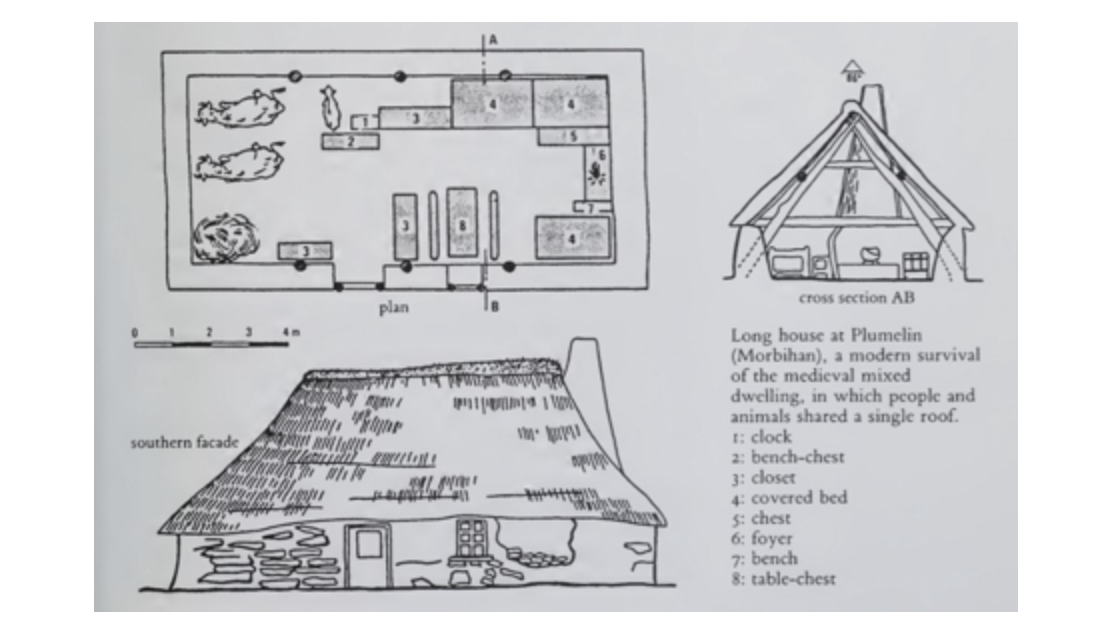
“There was no classical or medieval Latin word equivalent to“ privacy ”; “Privatio” meant “take” ”- Georges Duby , author of“ History of Private Life: Revelations of the Medieval World ”.
Late Middle Ages / Early Renaissance (1300-1600): laid the foundation for privacy
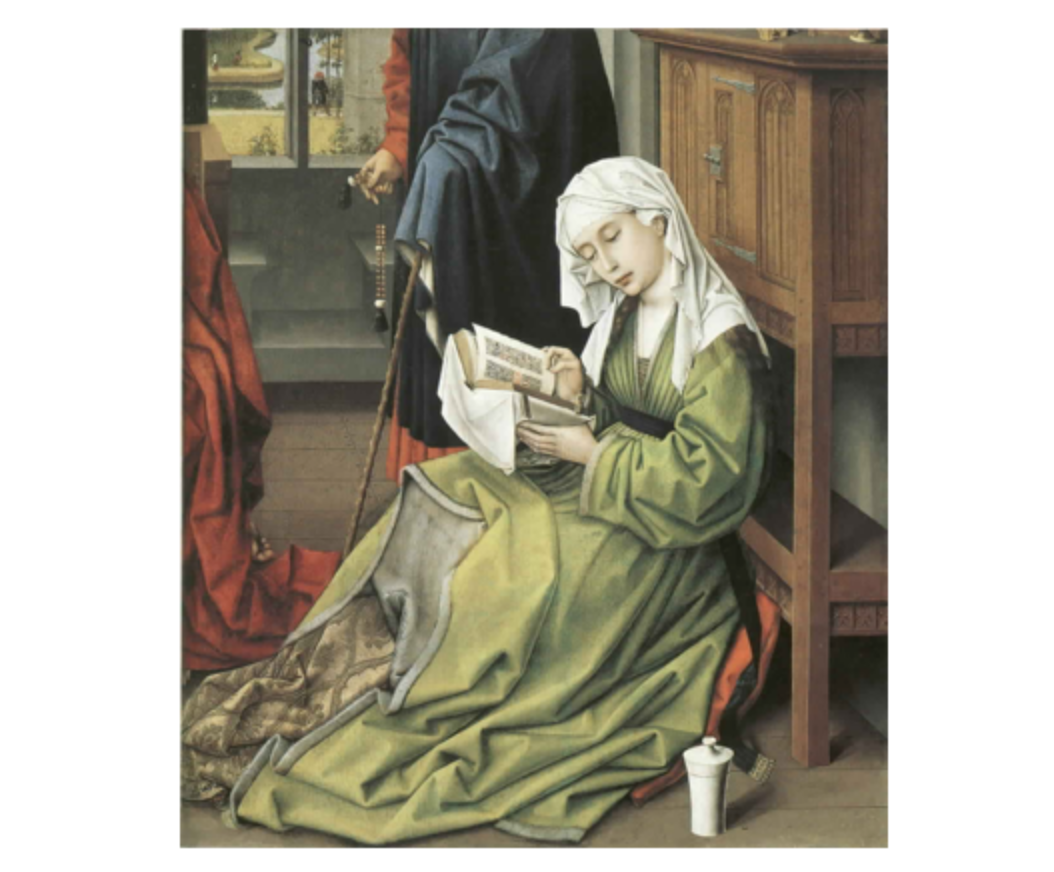
“Confidentiality is the highest achievement of the Renaissance” - Historian Peter Smith .
In 1215, the influential Fourth Council of Lateran (the “Great Council”) declared that confession should be compulsory for the masses. This powerful move by the Catholic authorities instantly extended the concept of internal morality to much of Europe.
“The moral governance apparatus was moved inside, into a private space that no longer had anything to do with the community,” religious author Peter Loy explained. Loneliness has a strong ally.

Luckily for the church, the new technology made quiet contemplation a much less expensive activity - the Guttenberg press.
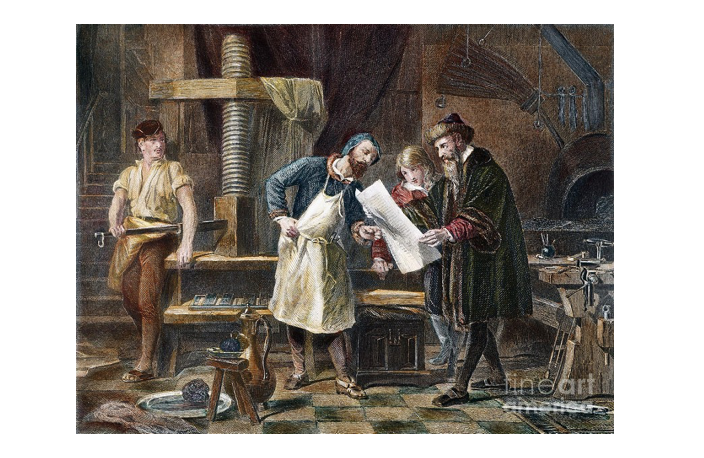
Thanks to the publication of prints after the decree of the Great Council, reading alone spurred European individualism. Poets, artists and theologians were encouraged in their efforts to “give up the world in order to turn their hearts with greater power towards God,” as the influential injunction “Brotherhood of Common Life” recommended.
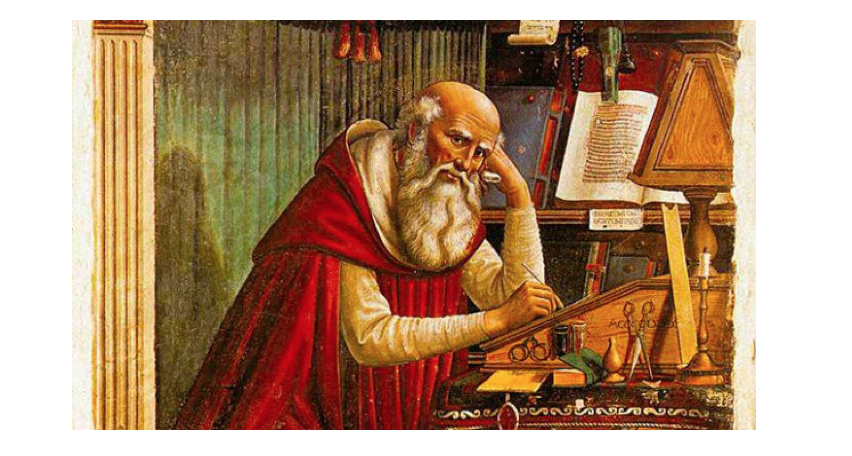
Of course, until the 18th century, public readings were still commonplace, a tradition that existed before the widespread distribution of books. The quiet office has been an elite luxury for many centuries.
Privacy Architecture
Individual beds are a modern invention. As one of the most expensive items in the house, one large bed became a place to meet friends, where guests were invited to sleep with the whole family and some servants.

But lack of hygiene in urban Europe has led to the fact that infectious diseases have destroyed a large part of the population of crowded cities. The Black Death alone - the pandemic of the bubonic plague - has killed more than 100 million people.
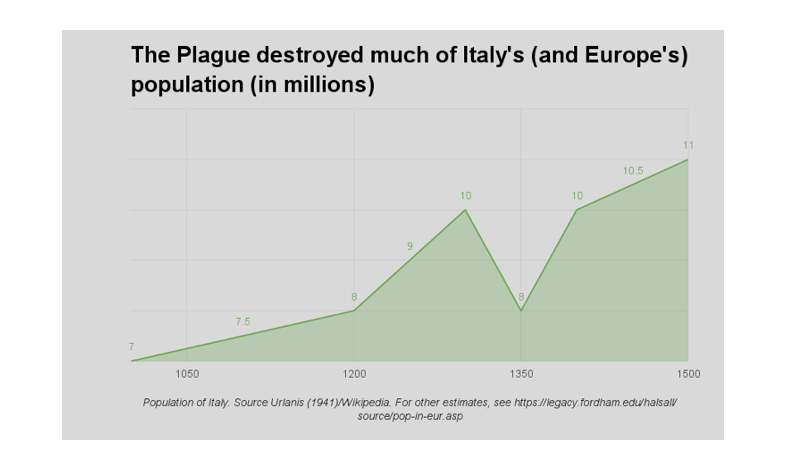
This deeply changed people's attitude to hygiene, especially in hospitals, where previously patients slept close to each other, like guests who stayed overnight at the hosts.
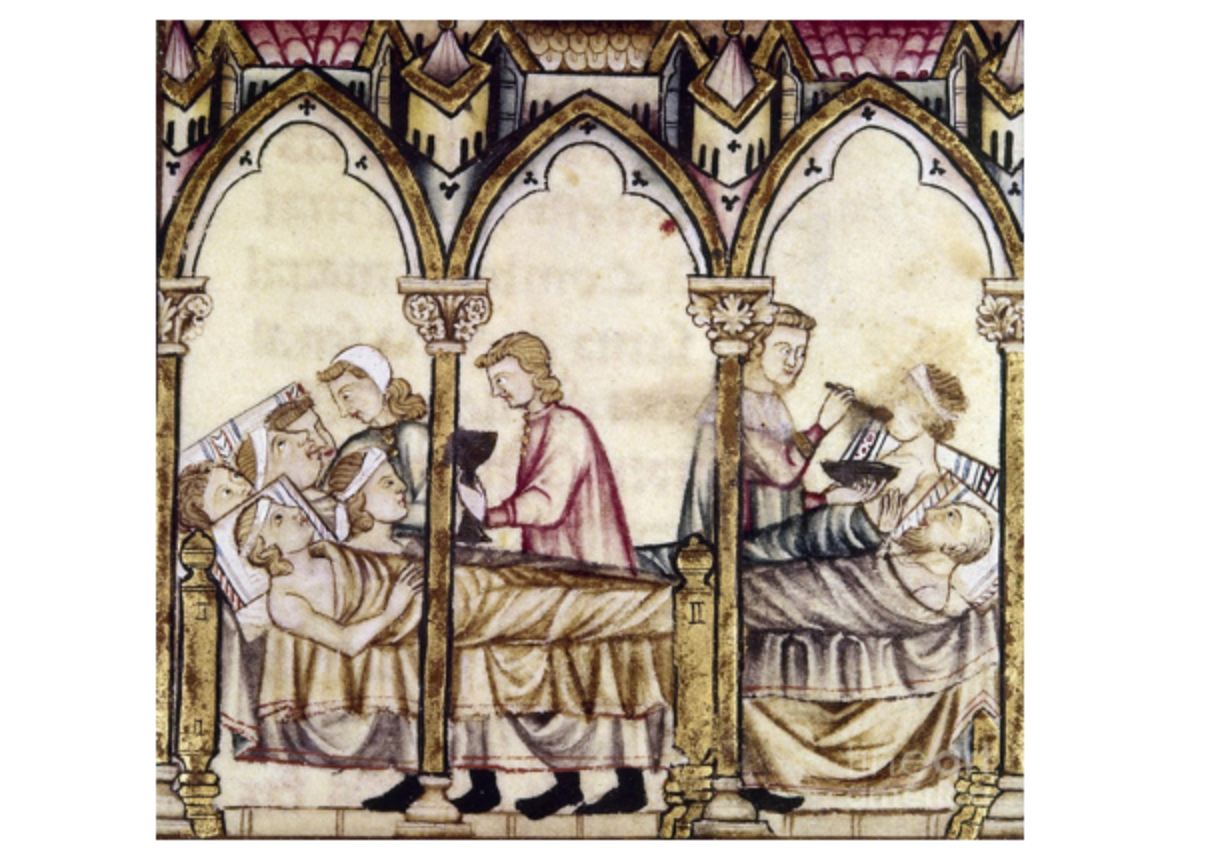
“Young children, both girls and boys, lie together on beds in which other patients have died from contagious diseases, because there is no order and there is no separate bed for children [who should] sleep six, eight, nine, ten and twelve people on the same bed, laying in jacks, ”said a nurse (around 1500), regretting the lack of modern medical procedures.
But coming into fashion of single beds in hospitals did not mean that sex was more confidential. Monitoring the entry into force of the marriage was widespread for both spiritual and logistical reasons.
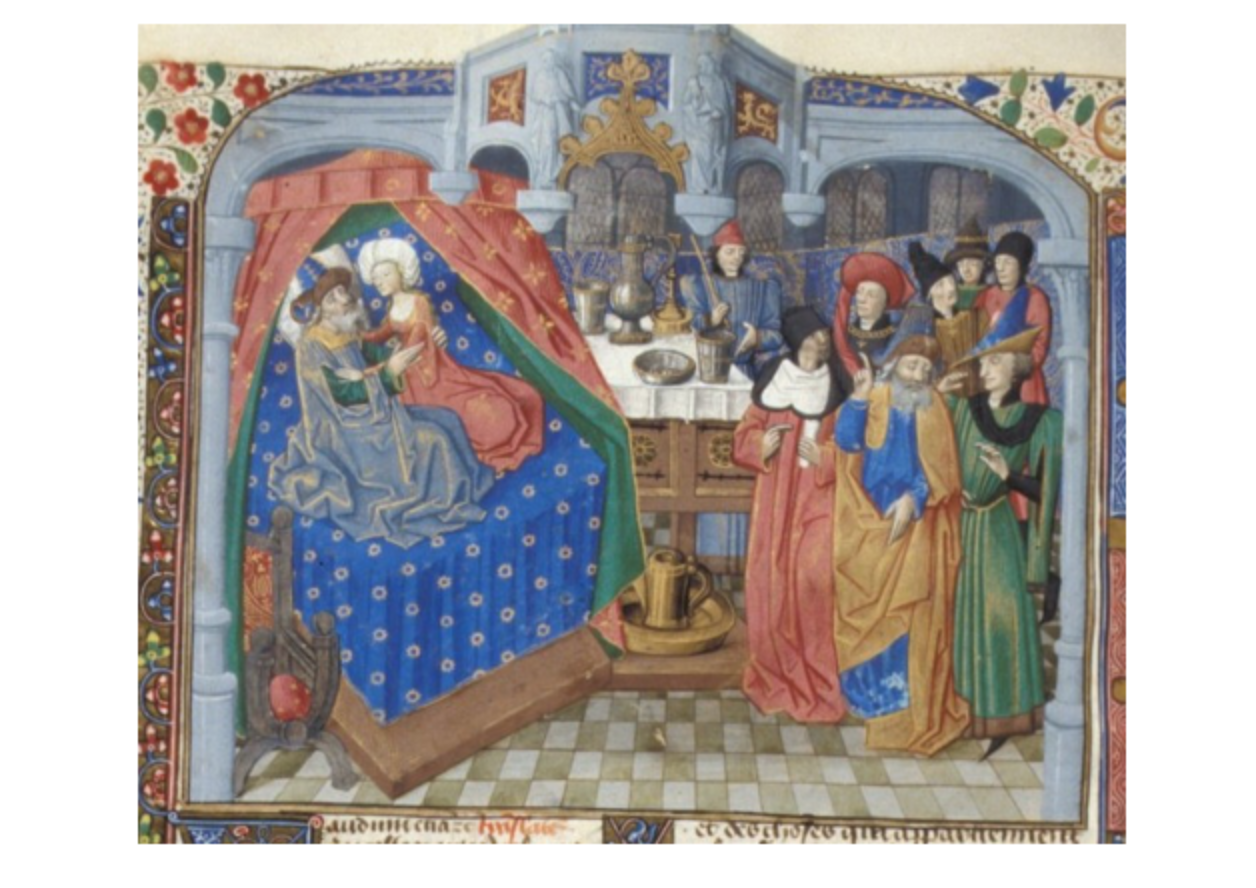
“The newlyweds climbed into bed in front of family and friends, and the next day they presented sheets as proof that the marriage had entered into force.” - Georges Duby , editor of Private History.
Few demanded privacy during sleep, because even single beds would not give them such luxury. Most houses had only one room. Architectural historians attribute the appearance of internal walls more to a person’s desire to keep warm.
Below is an excerpt from the Beowulf animated film in which couples sleep around the burning coals of a central bonfire. This is a vivid illustration of the open architecture of the large hall, which was widespread until the internal walls were popularized around 1400 CE.
“Firstly, I suggest that in the center there should be a room common to all, and there should be fire in its center so that many people can sit around it, and everyone can see the faces of the others when they indulge in their entertainments and stories” - Italian architect of the 15th century Sebastian Serlio .
In order for heat to dissipate efficiently, and people do not suffocate, fireproof constructions were built around the fires to bring smoke out. Below is an image of a “transitional" house dating back to the 16th century, when fireplaces located close to each other violated the traditional architecture of the open hall.
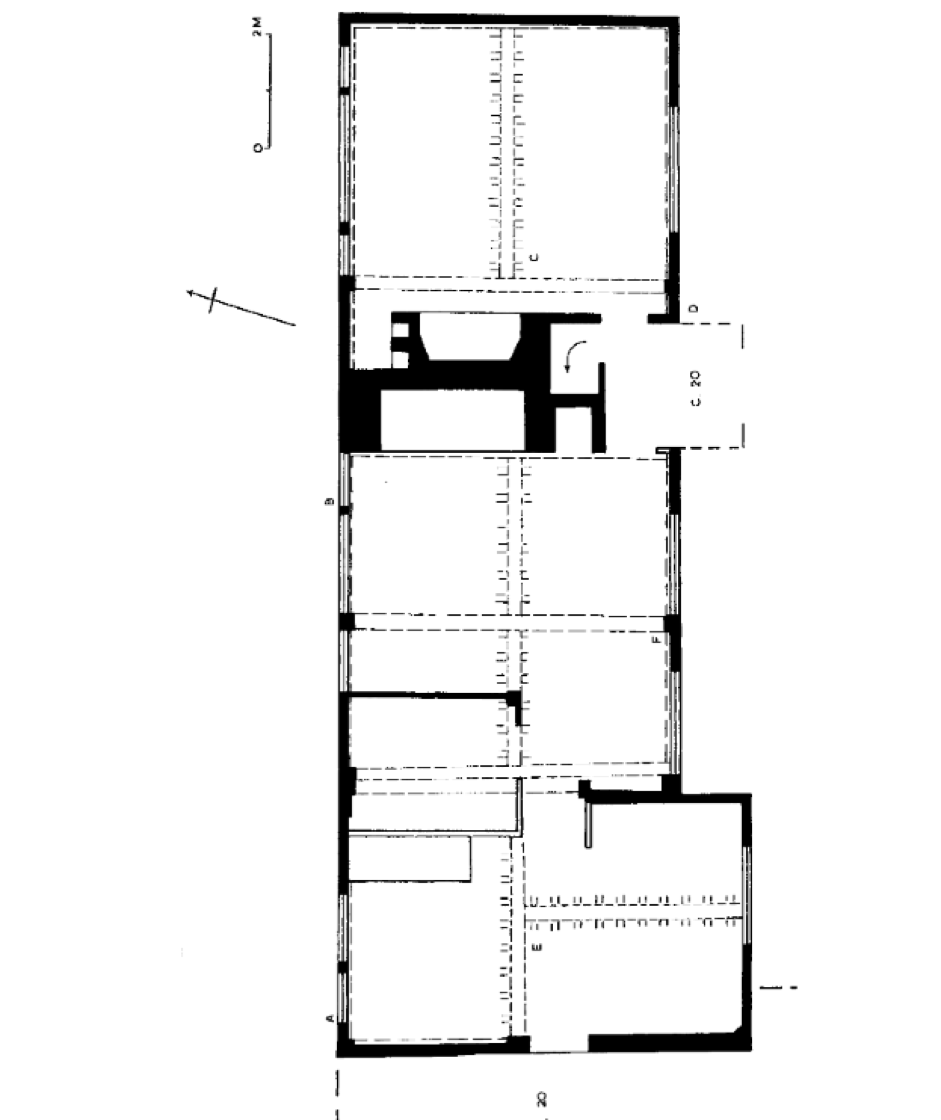
Source: Housing Culture: Traditional Architecture in the English Landscape (p. 78). "A fundamental change in the very plan of living space" - historian Sarti Raffaella about the appearance of the chimney.
Times before the Industrial Revolution (1600–1840): a house turns into private property, but does not become private
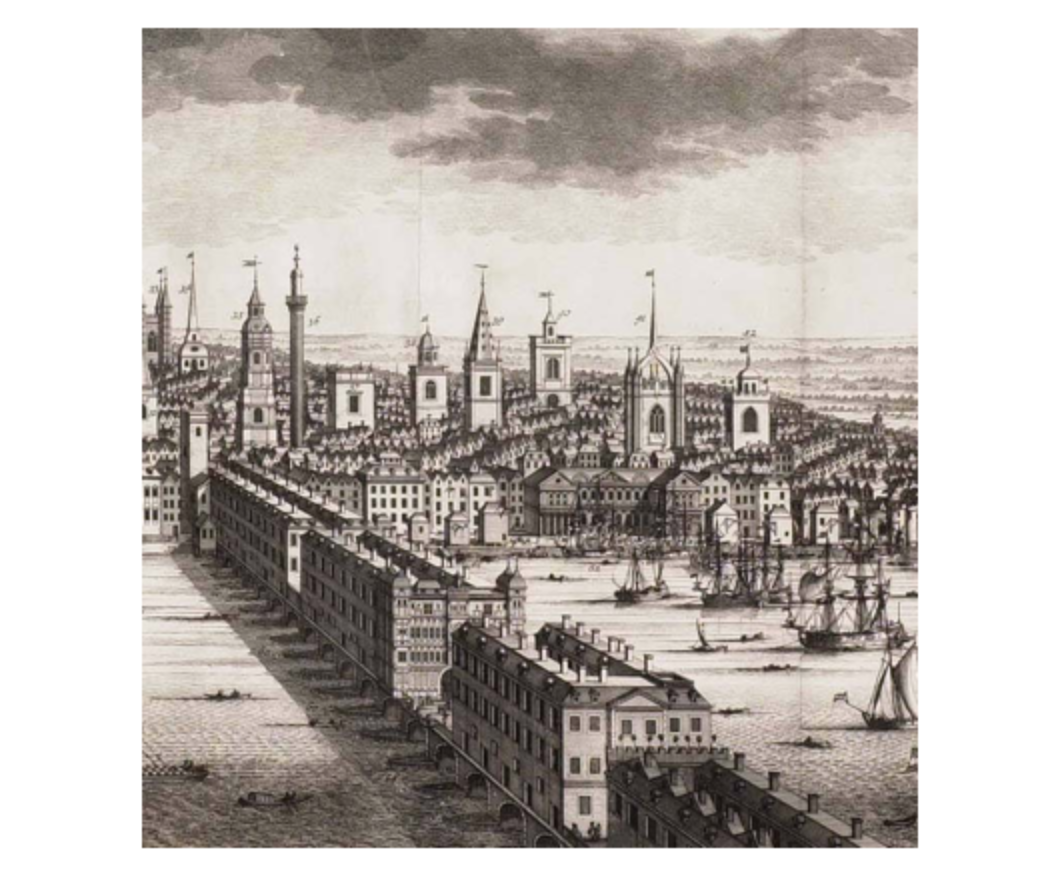
The first recorded diary was compiled by Lady Margaret Hobie, who lived in the 16th century.
On February 4, 1600, she writes that she retired " in her office, where I prayed and wrote down some thoughts for my personal awareness . "
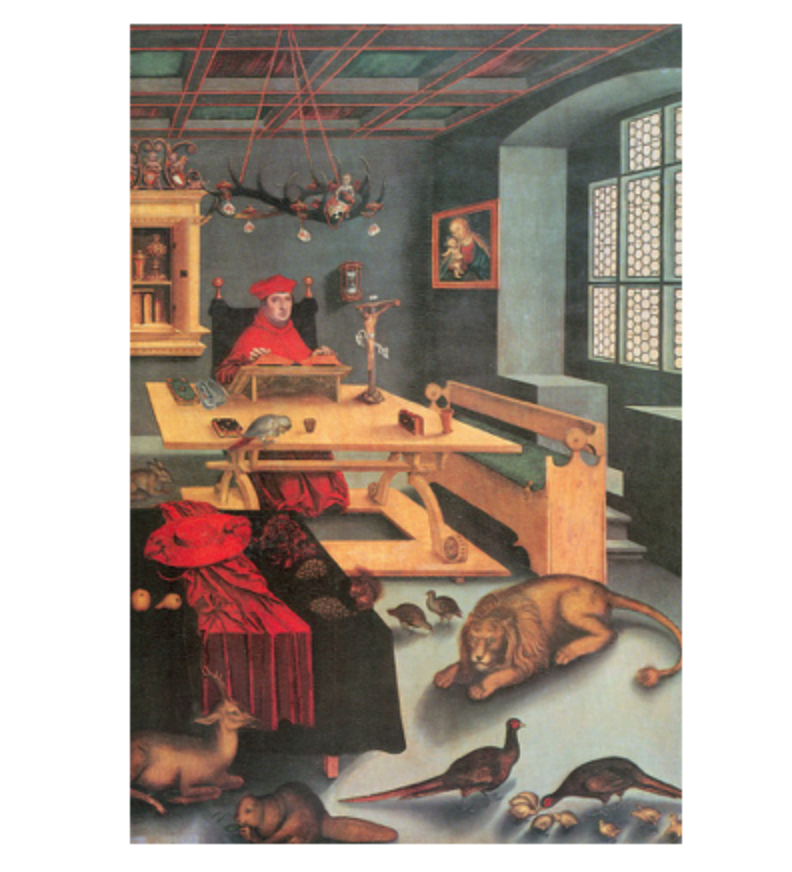
In the Renaissance, among at least wealthy residents, home privacy was popular. Nevertheless, even those who could afford separate spaces, it was more convenient to live in close contact with the servants and family.
“Having served as a servant to His Excellency Marquis Francesco Albergati for about eleven years, I can say and report that three or four times I saw the Marquis get out of bed with a perfect erection of the male penis” - 1751, Albergati's servant , Capachelli , testifies in court that his master did not suffer from incontinence, thereby refuting his wife's lawsuit for annulment of marriage.
The Law
Just before the Industrial Revolution, citizens demanded for the first time that the law begin to keep pace with the growing need for privacy. In this early handwritten note dated August 20, 1770, John Adams, a revolutionary and future president of the United States, expressed support for the concept of privacy.
“I am not subject to any moral or other obligations ... prompting me to publish what my annual expenses and income are.”
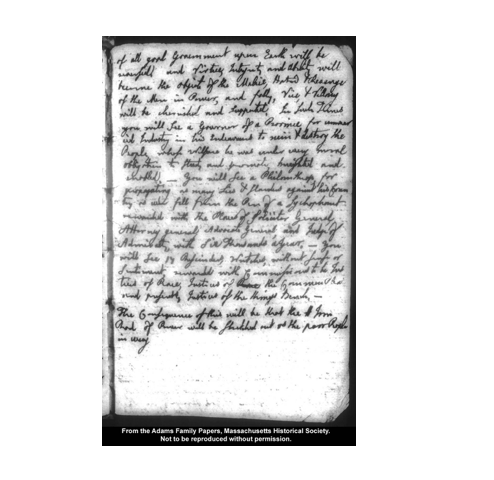
Despite a change in public opinion about privacy, the first American census was released to the public, mainly for logistics reasons. Information transparency is the best way to ensure that every citizen can independently check the census for inaccuracies.
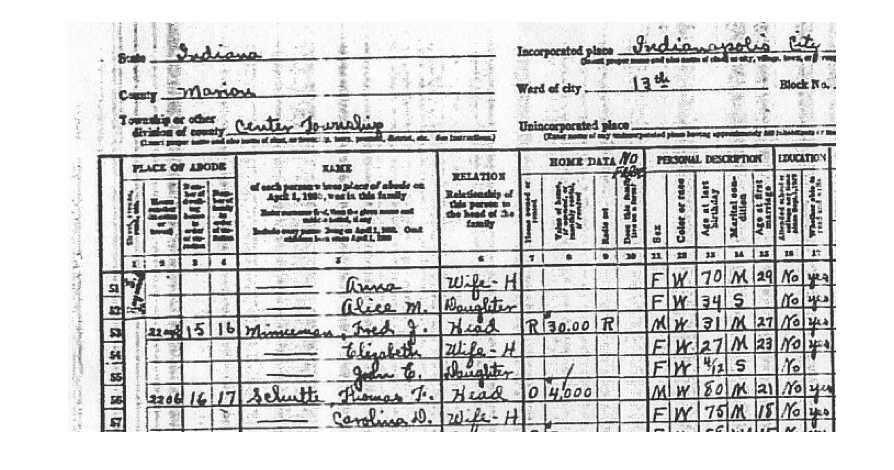
Citizens, recognizing the importance of confidentiality, subsequently supported the bill, which became perhaps America's first privacy law, the Postal Act dated 1710, which prohibited postal workers from sorting letters.
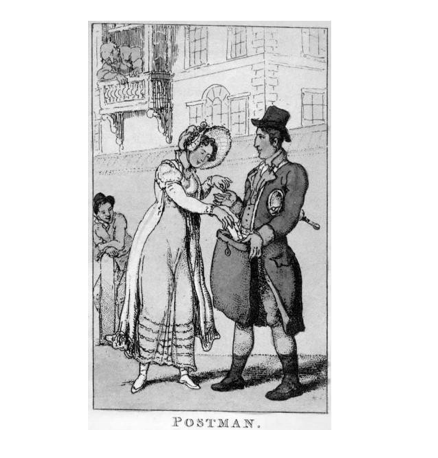
“I will no longer touch on this topic, but the next time I am lucky enough to see you, I will tell you about many things that are too commonplace for a letter that may fall into the wrong hands, because I know that, unlike Boston , here, many do not hesitate to open a personal letter ”- Dr. Oliver Neuss , regretting the well-known fact that letters are often read.
But this fact did not reduce the popularity of mail.
The Golden Age (1840–1950): privacy becomes the expected result
“Confidentiality is a completely modern product” - E.L. Godkin , 1890
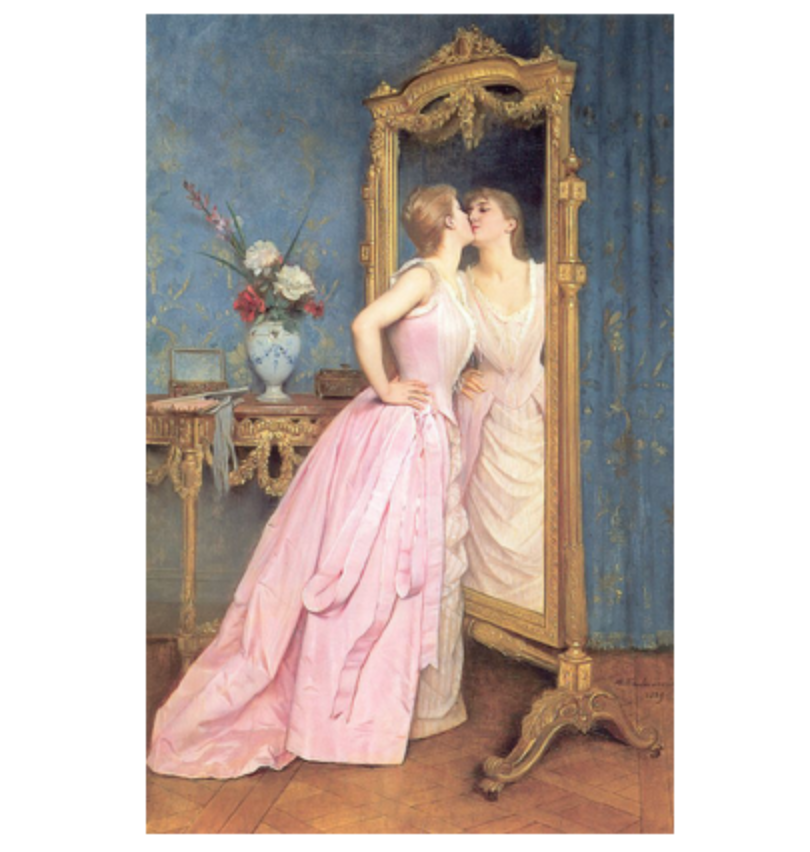
By the time the industrial revolution began to increase the welfare of the population, officials began to recognize privacy as a basic human right.
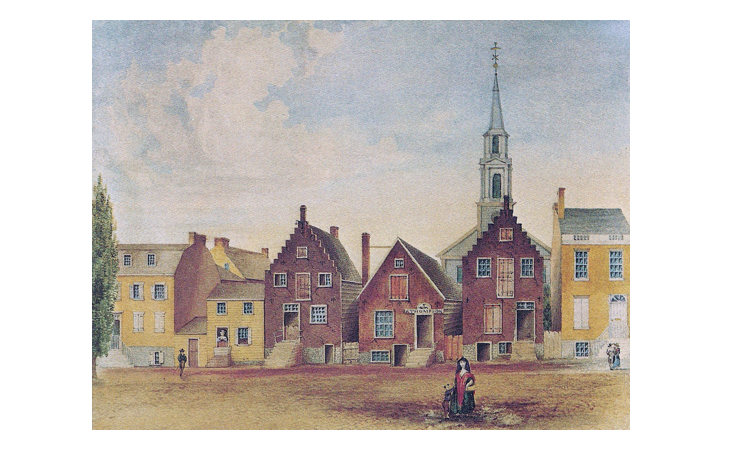
“The material and moral well-being of workers, as well as the health of society and the safety of society, depend on each family living in a separate, healthy and comfortable home, which it can acquire” - Speaker at the International Hygienic Congress in Brussels in 1876.
Nevertheless , the life of the poor was still visible. The famous 20th-century existential philosopher Jean-Paul Sartre watched the poor streets of Naples.
“On the ground floor of each building there are many tiny rooms that open directly onto the street, and each of these tiny rooms contains a family ... they drag tables and chairs outside or leave them on the doorstep, half outside, half inside ... the outside is organically connected to inside ... yesterday I saw how mother and father dined outdoors, and their child was sleeping in a crib next to the parents' bed, and the eldest daughter was doing homework at another table under the light of a kerosene lamp ... if a woman falls ill and remains in bed all day, then this is known to everyone, and everyone can see it .... "

The interior of the houses were no less cramped.
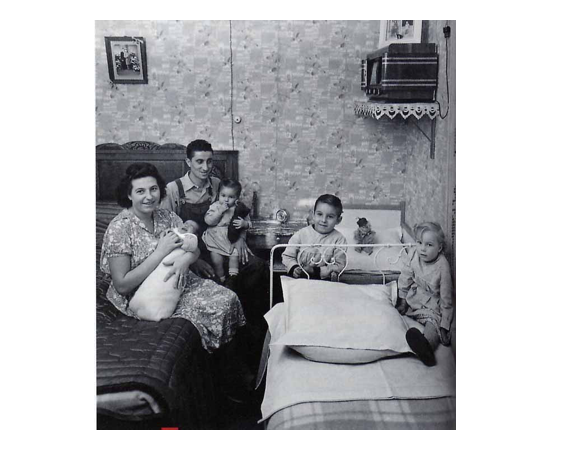
The emergence of "Privacy Rights"
Although architecture did not keep pace with the development of society, it was in the Golden Age that privacy was officially recognized as a political right.
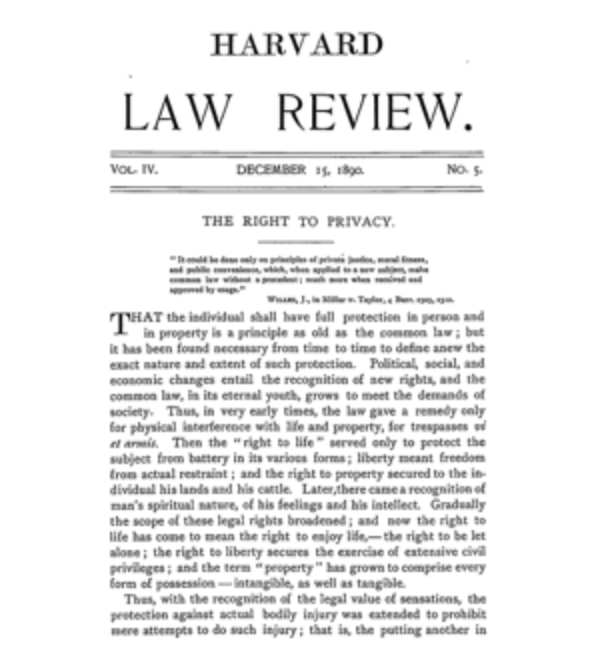
“The intensity and complexity of life associated with the development of civilization formed the need for solitude, and a person under the influence of culture became more sensitive to publicity, because of which solitude and confidentiality became more important for the individual; but modern enterprises and inventions, intruding on a person’s personal life, subjected him to mental pain and suffering much more than he could cause him bodily harm ”-“ The Right to Immunity ”, December 15, 1890, Harvard Law Journal .
Interestingly, the right to privacy was legalized on the same basis on which it is now so popular: the invasion of technology in personal life and in information about it.
However, the father of the right to privacy, the future judge of the Supreme Court Louis Brandeis ahead of his time. His article did not receive much press coverage - and the coverage that she received was not so laudatory.
The feelings of these thin Americans are undoubtedly the basis of the article in the December issue of Harvard Law Magazine, in which two members of the Boston college of lawyers recorded the results of certain studies on whether Americans have a common right to privacy that can be successfully protected in court . ”- Galveston Daily News on“ The Right to Confidentiality. ”
Prior to this, America has never benefited from privacy. Minor intrusions into the personal information exchange of citizens played an important role in the victory in the Civil War.
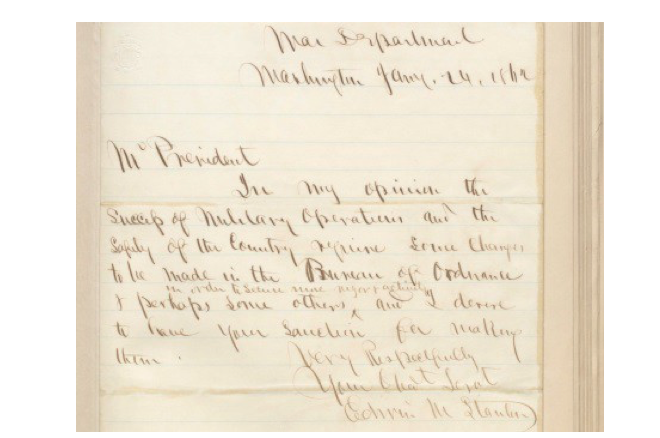
This is a letter from Minister of War Edwin Stanton demanding an extension of wiretapping authority. Lincoln simply scribbled on the back: “The Minister of War has my permission to act at his discretion in this matter. A. LINCOLN. "
It remained so until the industry provoked a flash of anger of another president, and then confidentiality was enshrined in law. President Grover Cleveland’s wife was very pretty. And the availability of her images made her an ideal target for commercial use.
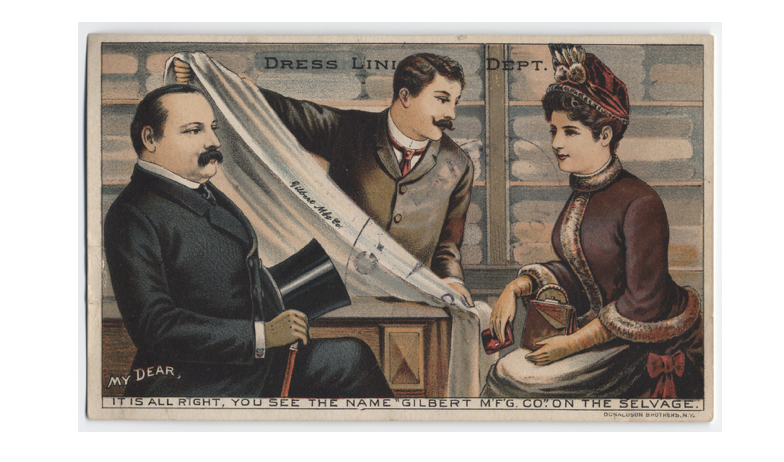
The widespread use of the president’s wife’s appearance in product advertising ultimately led to one of the first national privacy laws. In 1903, New York City legislature imposed a fine of up to $ 1,000 for unauthorized use of someone else’s image for commercial purposes.
Indeed, throughout almost the entire 19th century, privacy was respected only to protect the husband’s right to keep his wife’s public and private life secret, including physical abuse of her.
“We will not bring greater evil to society by raising the curtain over the secret of family life in order to punish the lesser evil in the form of petty violence.” - 1868, court ruling in the Rhodes case.
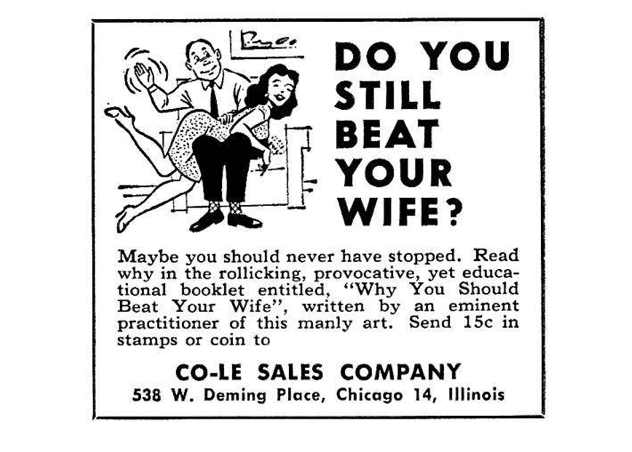
Individualism technology
In the first 150 years of America’s history, there was an explosion of information technology, from a post card to a telephone. Since each method of communication provided a chance to look into the private lives of strangers and neighbors, Americans often chose, albeit unwillingly, cheaper and more convenient technology for communication.
Privacy was not a priority.
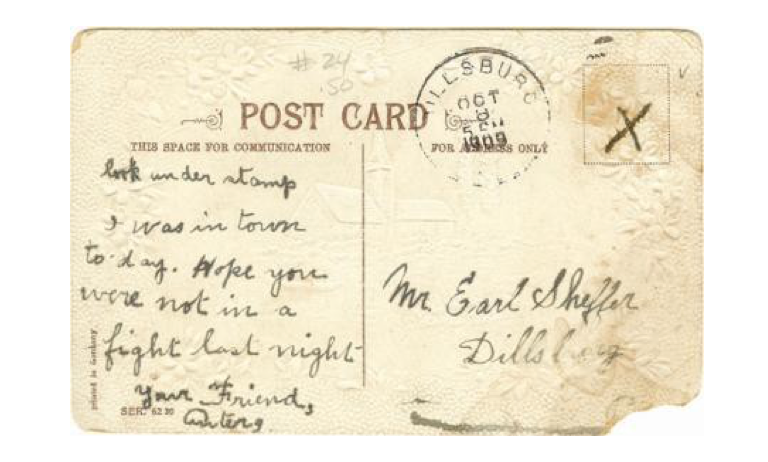
“Here is a woman who conducts all correspondence using this channel. She reveals secrets of great importance, writes about misconduct and mistakes, completely not thinking about the consequences. She believes immensely in the impeccable reputation of postmen and messengers, while they sit on the steps of the houses every morning laughing at her postcards. ”- Editor of The Atlantic Weekly on American Love for Postcards, 1905 .
Even though the cards were not confidential, they were convenient. More than 200,000 postcards were ordered in the first two hours after their release in New York on May 15, 1873.
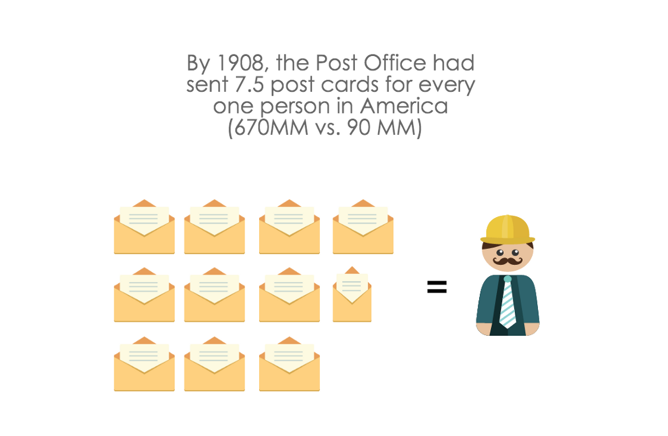
The next big success in the field of information technology was the telephone, which was wildly popular in the early 20th century. However, individual telephone lines were excessively expensive; instead, the neighbors shared one line, which was called “twin lines.” Commercial advertisements encouraged neighbors to politely share technology.
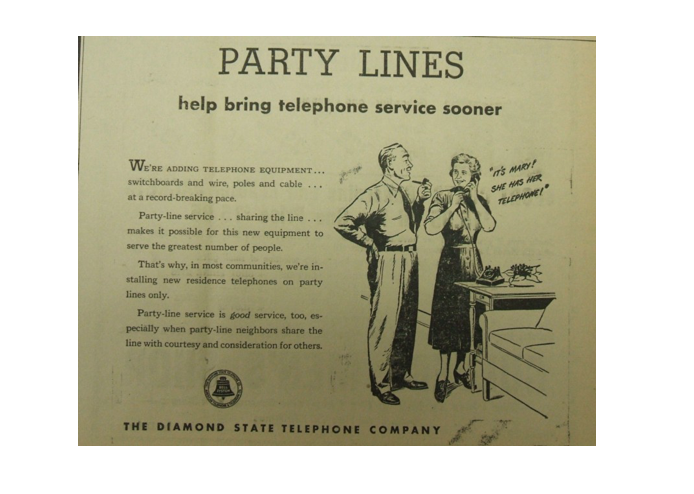
But, as this comic strip shows, eavesdropping was quite common.
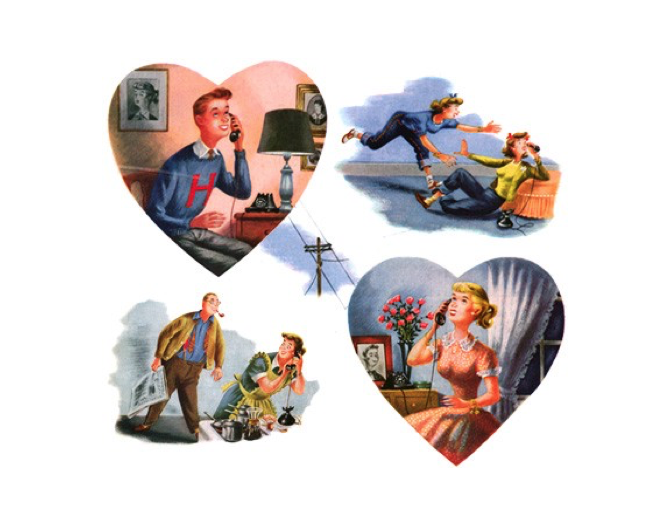
“Paired lines can destroy relationships ... if you talked to a girl on a paired line and another girl called you, it’s a matter of seams. Five minutes after you hung up, everyone in the neighborhood, including your girlfriend, knew about the call. There were times when your girlfriend could intervene in a conversation and arrange a spree to both. Take care what you say. "- Donnie Johnson .
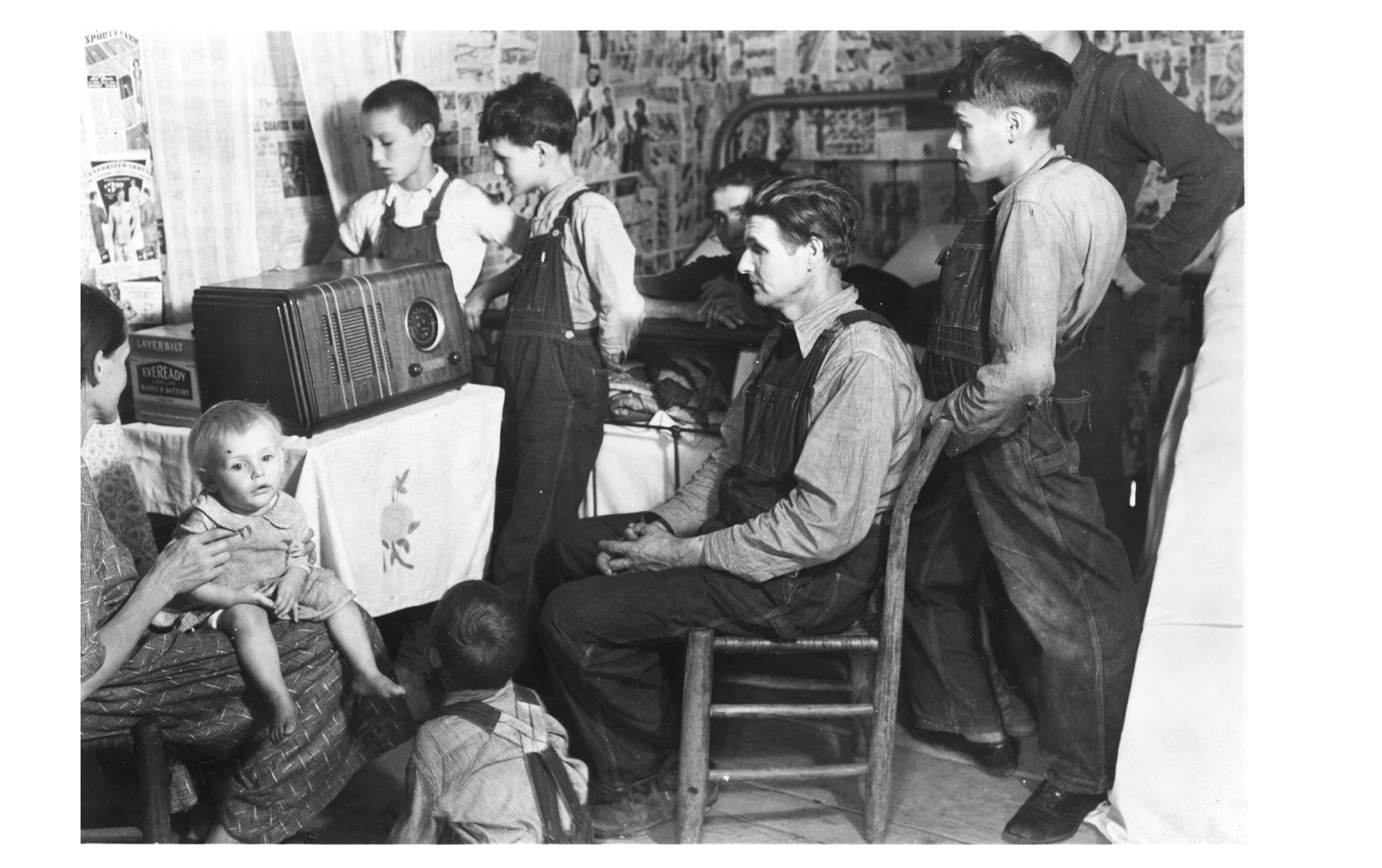
In those areas where convenience and privacy happily coexisted, individual gadgets appeared . Listening was not always an individual activity. The very fact that sound was a form of broadcasting made listening to conversations and music a social activity. This has changed with the invention of headphones.
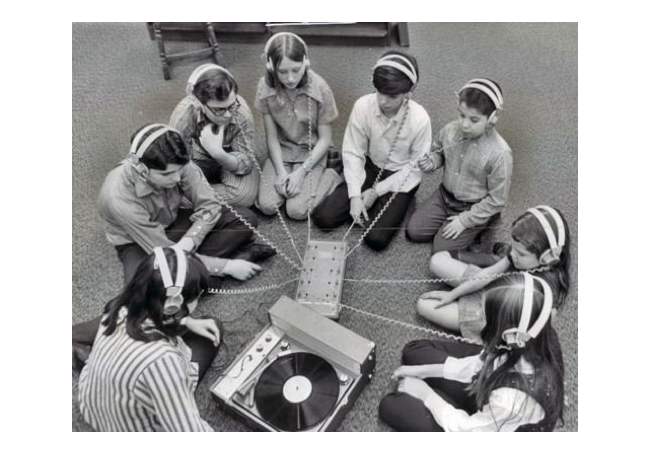
“The triumph of the headphones is that they create an oasis of privacy in public space.” - The Atlantic Columnist, Civil Rights Supporter, Derek Thompson .

The end of the 20th century: fear of a world without privacy
By the 1960s, individual telephones, rooms, and homes had become the norm. 100 years ago, when Lincoln listened to all telegraph lines, few asked questions. In the new century, aggressive surveillance overthrew Lincoln's successor, although his espionage was much less common.
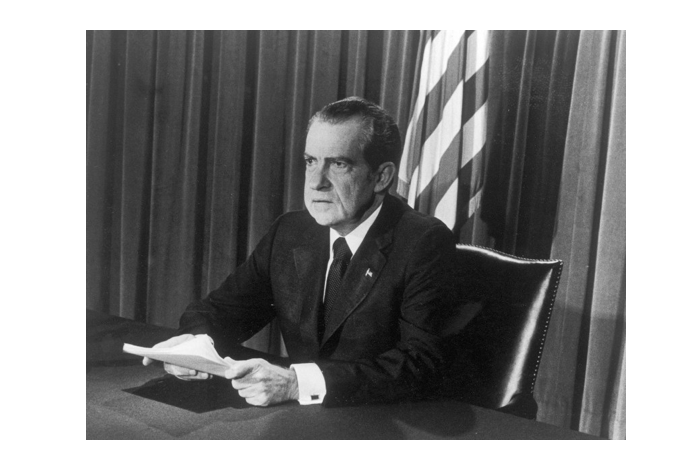
Upon assuming office, the former vice president assured Americans that their privacy was safe.
“As a vice president, I drew attention to the individual rights of Americans in the field of confidentiality ... There will be no illegal wiretapping, installing bugs or hacking in my administration. There will be an ardent desire for tough laws to prevent illegal invasions of privacy in both government and private activities. ” - President Gerald Ford .
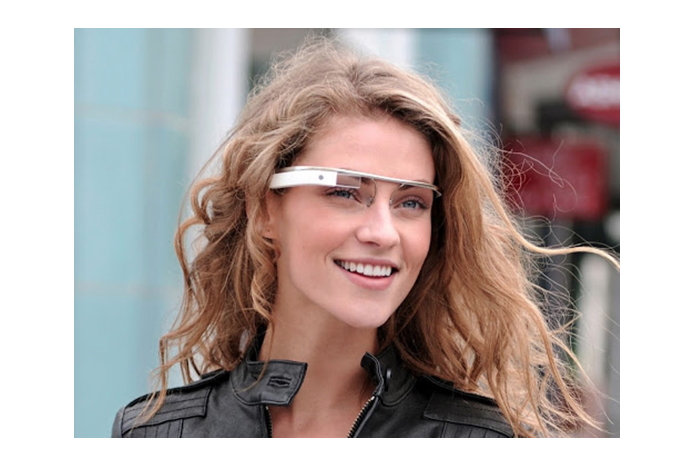
In the early 2000s, young consumers were ready to purchase a location tracking device that seemed like a nightmare in 1984.
“The magic age is people born after 1981 ... This is a watershed moment, we see big changes in privacy and acceptance by users.” - Loopt co-founder Sam Altman , who first used paid geolocation features.
Fear of information openness by older generations has become the subject of ridicule.
"My grandmother always reminds me to turn off my GPS a few blocks to the house before I get home, so that the man telling me how to get there doesn't know where I live." - A letter to the editor of the series "Parents Don't Understand Us" by College Humor .
Growth in population density and the rapid growth of rents in large cities have influenced cohabitation.
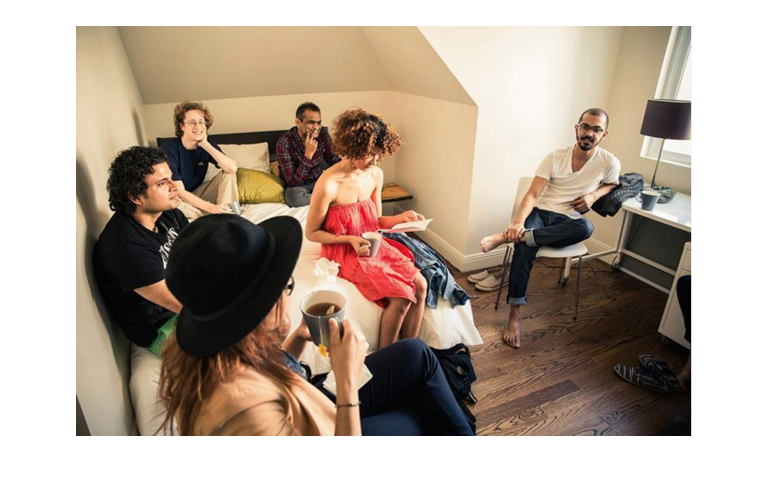
"We are witnessing a shift in consciousness, a transition from hyper-individualistic to more cooperative spaces ... We believe that we need to raise our children together." - Jordan Aleja Grader , a resident of San Francisco.
A new "variety" of the so-called "life bloggers" appeared, publishing intimate details about their days.
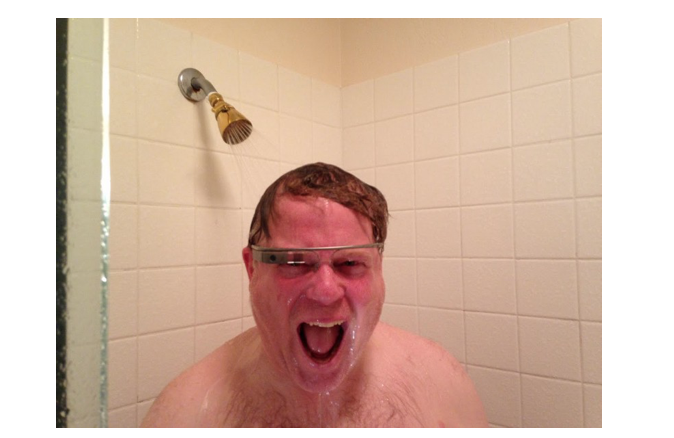
On the verge of frankness and pornography, anonymous exhibitionism takes refuge on the Internet, on the insanely popular content aggregator Reddit, in a community very aptly named “Gone Wild”.
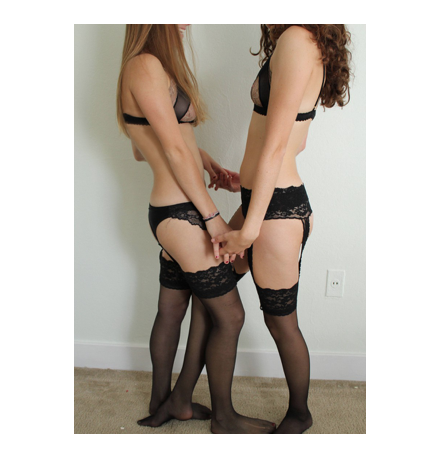
Part 2
How Privacy Will Disappear Again
Over the course of 3000 years, most people have been willing to sacrifice privacy for convenience, wealth, or fame. It seems that this is true today.
AT&T recently launched a preferential broadband Internet service where customers can pay as little as $ 30 per month so that their online behavior is not monitored by targeted advertising systems.
“Since we started offering this service more than a year ago, the vast majority of users have opted for an ad-supported model.” - AT&T representative Gretchen Schulz (private message).
Shareholder Riza Puno was able to persuade almost half of the visitors to the Brooklyn Arts Festival to submit their personal data (photos, fingerprints or social security numbers) in exchange for a delicious cinnamon cookie. Some have even written proud tweets about this.
Tourists on Hollywood Boulevard can easily reveal their passwords for appearing on the live show “Jimmy Kimmel Live” for a second.
Even for opponents of personal information disclosure, the price of confidentiality may be too high. By advancing cutting-edge healthcare technology, hiding sensitive data can mean painful and early death.
For example, researchers have already discovered that if patients taking the deadly Vioxx drug shared their medical information publicly, statisticians could detect side effects earlier and save 25,000 lives.
As a result, Larry Page of Google launched a project whose goal is to involve a large number of users in providing their medical information to the academic research community. Although Page stated at a TED conference in 2013 that such information could remain anonymous, statisticians doubt it.
«Мы притворялись, что, удалив достаточную информацию из баз данных, мы можем сделать данные анонимными. Мы обещали неприкосновенность частной жизни, и эта статья демонстрирует, что для определенного процента населения эти обещания оказались пустыми» — Джон Уилбанкс из Sage Bionetworks, комментируя новую научную статью, которая раскрыла данные анонимных доноров в базе данных генетики, основываясь на общедоступной информации.
In terms of statistics, it is fairly easy to identify people in anonymous data sets. As for myself, there are not many 160 cm tall Jews in San Francisco with chronic back pain. Each piece of information that we disclose about ourselves will be another disease that we can track, and as a result, it can become another life saved. If I want to know if I will suffer a heart attack, I will have to disclose my personal data for public research. In the end, privacy will be an early death sentence for me.
Already, health insurance sellers are offering discounts for people who wear medical trackers and allow others to analyze their movements. Many, if not all, of the next generation of consumers will choose cash and a longer life in exchange for publishing the most intimate details. What can we understand if we know such basic medical information as the number of calories burned during the day? Yes, almost everything.
With the help of a primitive step and calorie counter, I was able to distinguish whether I had sex or was in the gym, because the per-minute profile of calorie consumption during sex is quite different (the image from my tracker below shows that a lot of energy was used up at the beginning and at the end , with several waves. Not many activities besides sex have such an activity profile.
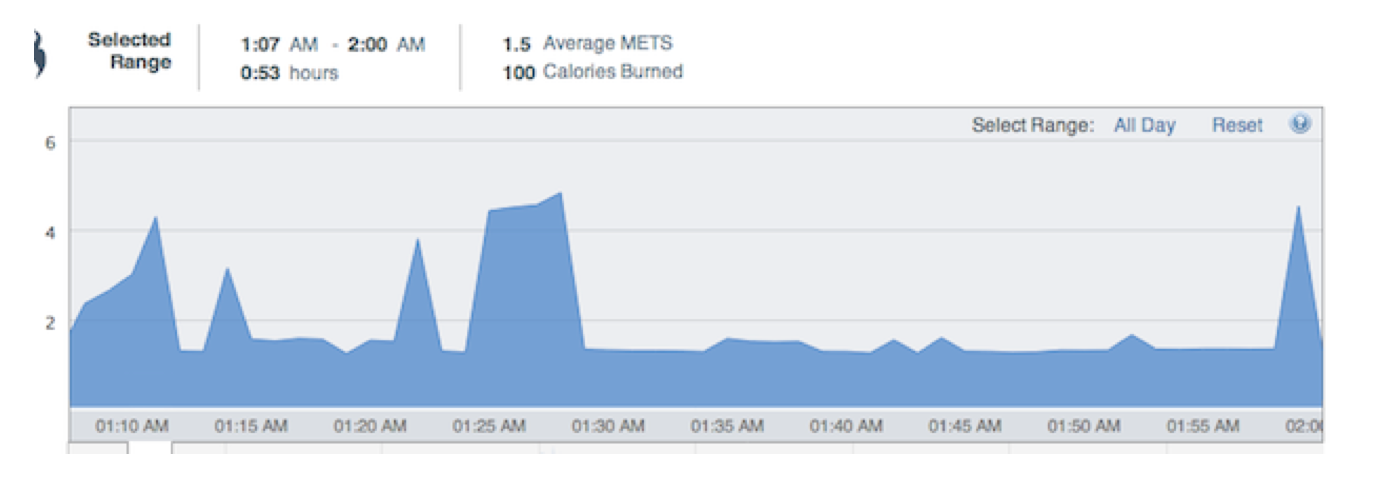
More advanced health monitors already used by insurance sellers, such as sensors embedded in leathers , are already appearing . clothes and clothes that determine stress and concentration, so far the markers for an early heart attack or dementia will be the same as the markers of an altercation with a spouse or markers of short daytime sleep at work.
No behavior escapes classification, giving us unprecedented opportunities to extend healthy lives. Failure to follow up on this tracking — even if possible — would mean early death and extremely expensive health insurance for many.
If human history is a guide, then the price and convenience of radical information openness will return us to the times when we could not imagine a world in which privacy exists.
It is difficult to understand whether complete and categorical informational openness can help to realize a more honest and innovative techno-utopian future. But, given that privacy exists only for a short period of our history, its disappearance is unlikely to doom humanity to perdition. Indeed, transparency and openness are a natural state of humanity.
